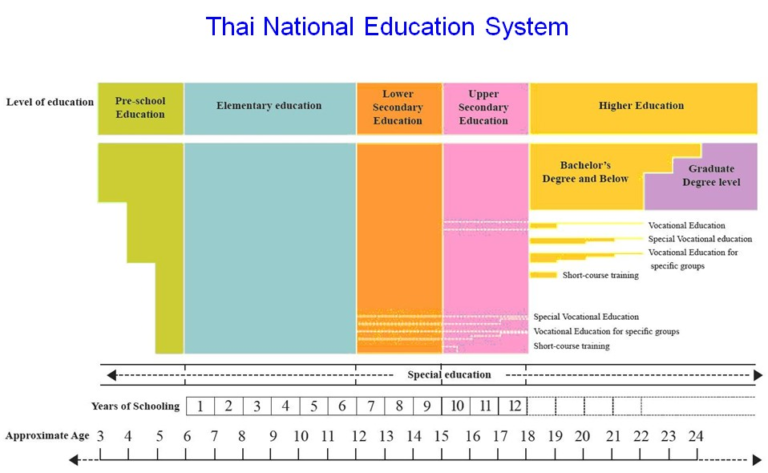Study in Thailand Overview
General introduction
Thailand is located in the center of Southeast Asia's Indochinese peninsula with a population of 68 million. Besides, it is also the 50th largest country in the world and the 21st most populous country. Thailand‘s capital and main administrative center are in Bangkok.
Because of the influence of the monsoon, Thailand has two distinct rainy and dry seasons with an average annual temperature ranging from 22 degrees Celsius to 27 degrees Celsius. In general, the weather in Thailand is quite mild and comfortable for travel and study activities.
In addition, Thailand is also known as the "land of smiles" because of the ingenuity, courtesy in communication, and the special hospitality of the indigenous people. Not only has a culture that blends ancient and modern, but Thailand is also a developing country and one of the countries with the strongest economy in Southeast Asia. With an extremely low cost of living and cultural diversity, a wide range of opportunities, along with a mild climate, this is the country of choice for many international students as the perfect destination for them.

Other special reasons to study in Thailand
- Opportunity to experience Asian tourist paradise: Studying in Thailand, students will have the opportunity to enjoy the beautiful scenery of temples, beaches, cities and discover unique cuisine that no other Southeast Asian country has. This is also one of the factors that make Thailand an attractive study abroad destination in Asia.
- Convenient geographical location: With short flight time and low travel costs, Vietnamese students can easily visit family or travel to neighboring countries without affecting the study program.
Studying abroad in Thailand is currently emerging as a new study abroad trend that is being chosen by many young people because of its advantages. So, put your trust in the quality education of Thailand, which will bring you a new world of knowledge. Don't miss out and immediately contact StudyLink's experienced consulting team for support!

These days, most Vietnamese students in Thailand commence in specially designed international programs which are taught completely in English, in international school’s Thailand campuses, such as Stamford International University.
Early education
Early education for children from 3- 6 years old, is not compulsory.
Elementary
Students enroll in school at the age of 6. The elementary stage consists of 6 levels, from grades 1- 6.

Secondary
The secondary stage is from grades 7 - 12. While the lower-secondary grades 7 - 9 are mandatory, students can choose either upper-secondary grades 10 - 12 or vocational education.
Higher education
The goal of the Thai Government is to put universities at the forefront of Science and Technology, which is likely a result of the country's strong economy. International students can take advantage of this excellent education available in their study experience.
Higher education programs in Thailand
- College: After finishing 3 years of college, students receive an Associate Degree, or students can choose to study at Vocational Colleges (2-3 years).
- University: Students receive a Bachelor's degree after finishing 4 years of study. The course lasts 6 years for majors that require more in-depth knowledge
Post-graduate education
- Master degree – MA: 1 - 2 years
- Doctorate degree – Ph.D.: 2 – 5 years
Admissions
- Academic transcripts in English sent directly by the school you attended
- For a doctoral degree, a letter of confirmation issued by the school is required.

Income from part-time jobs in Thailand
As one of the Asian countries on the rise, the recruitment demand for professions in Thailand is increasing, so the rate of getting a job right after completing the study program in Thailand is very high. In addition, students can work part-time in shops and restaurants to gain experience and earn a decent amount of money for daily living while studying in Thailand.














